
15 minute read
Insight
Local businesses share the wisdom of experience

Advertisement

BY RACHEL D. RUSSELL PHOTOGRAPHY BY JENNIFER L. RUBENSTEIN GRAPHICS BY CARYN SCHEVING
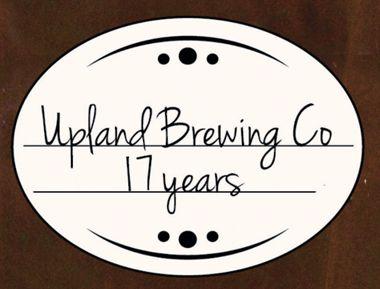
Even if you aren’t thinking about starting up your own cookie shop or calzone empire, there’s much to be learned from those who have the gumption to earn their living by doing what they love—and then bring it to the masses. We spoke with a variety of Central Indiana business owners—Anne Collins of Agrarian Indy, Kurt Cohen of Arni’s Restaurant, Jennifer Wiese of BeeFree, Mark McSweeney of Broad Ripple Chip Co., Mark Cox and Joshua Henson of Fermenti Artisan, Doug Dayhoff of Upland Brewing Co. and Terry Knudson of Viking Lamb— for some pro tips and advice.
Edible Indy: How did you come up with your product/idea? What kind of market research was involved?
Agrarian: Andrew Brake had started Naptown Chickens several years before the idea for Agrarian evolved. He had a good feel for the growth of the backyard chicken craze and the need for a store to serve the needs of urban chicken farmers. In discussions with Anne Collins and David Stuckert, it was clear that chicken supplies could not support a retail store but a store with a broader off ering of products might be successful.
BeeFree: When we discovered that gluten-free was impactful for our son with autism, I started developing recipes for his favorite foods: chocolate chip cookies, pizza and chocolate cake. After we bought and tasted every brand available, my mom and I got busy in the kitchen. We fi rst re-created our family favorites, then we started taking requests.
BR Chip: I had extra room in my existing business (Great Harvest Bread) and I wanted to think of something else to do with it. I had seen artisan potato chips sold in other places around the country and, after experimenting, decided to do it.
Fermenti: We decided to focus our business on fermented foods as a key beginning step toward healing the body through food and as a missing component to the standard American diet. In addition to reading and demographic research, we saw a gap in the local market for the products that we create.
Viking Lamb: My business was born out of necessity—I bought a fl ock to use that had some issues that needed cleaned up and I had a chance to make some money.
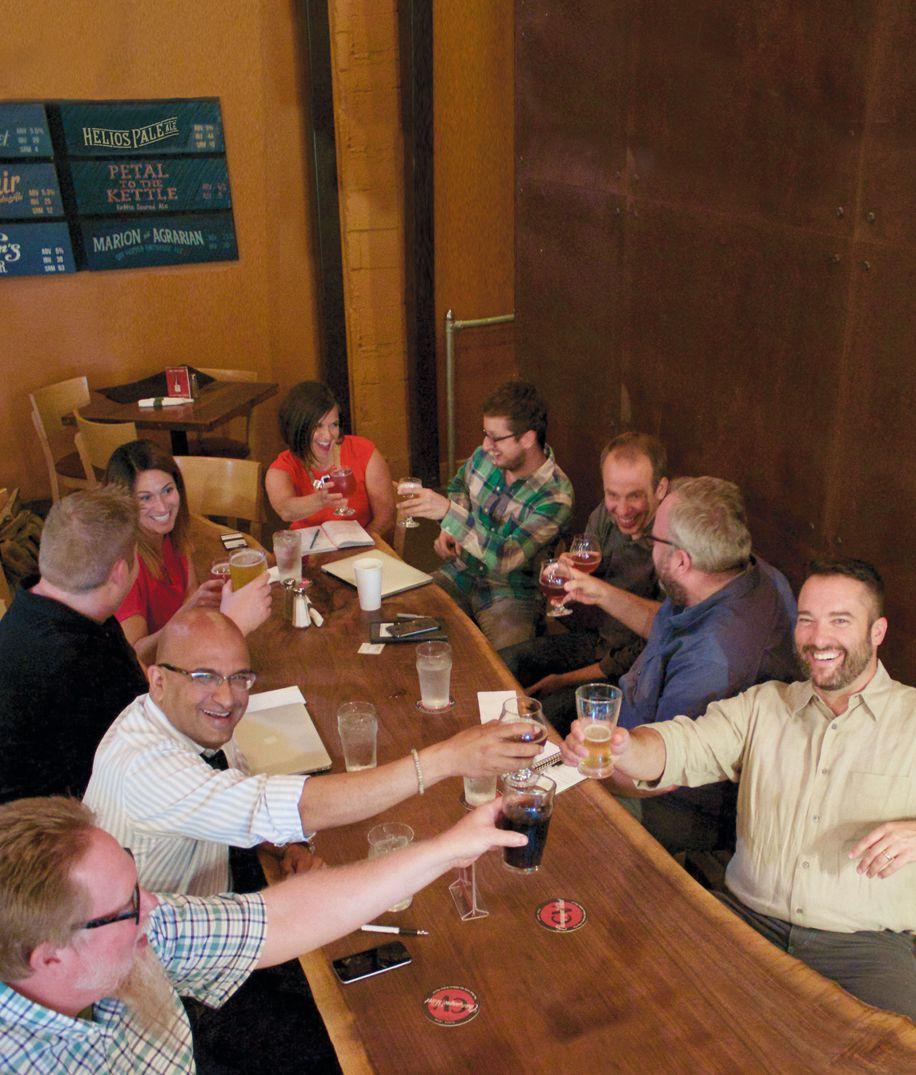
EI: What are the biggest challenges you have faced in starting your business?
Arni’s: Th e biggest challenge is always managing and maintaining the staff , keeping the employees happy and motivated. Our product has always been in high demand, but it is a people business through and through.
BeeFree: Because I came into the food business world without any experience or bag of tricks, so to say, my biggest challenges in getting started were involved with fi nding quality, cost-eff ective sources of ingredients.
Fermenti: Our biggest challenges have been lack of capital (as we are a self-funded company that has never taken on any debt, just building the business piece by piece from scratch), along with the lack of consumer education/knowledge of our products.
Viking Lamb: In 2001, lots of restaurants weren’t even looking for a local product, so I had to create a whole new state of mind. Th ere was the Carmel Famers’ Market and not much else. And lamb—most people would look at me and say “I don’t eat it and I’m not interested in it.”
EI: How did you form your business plan?
BeeFree: Th e business plan for BeeFree is an evolving document. It has changed from creating a product, to turning that product into a business, to growing that product, to adding other products.
BR Chip: Little by little I worked on numbers and projections. It was a second business to begin with, so I did not have the pressure on me. I just fi gured whatever we can sell will be great, maybe it will grow bigger.
Upland: Every year we revisit the business plan and establish three priorities for each department to develop the following year. Every year we win some and we lose some.
Viking Lamb: I didn’t have a “real” business plan, it just evolved. I had a lot of things in my head, had a sales background and I have always been a results person.
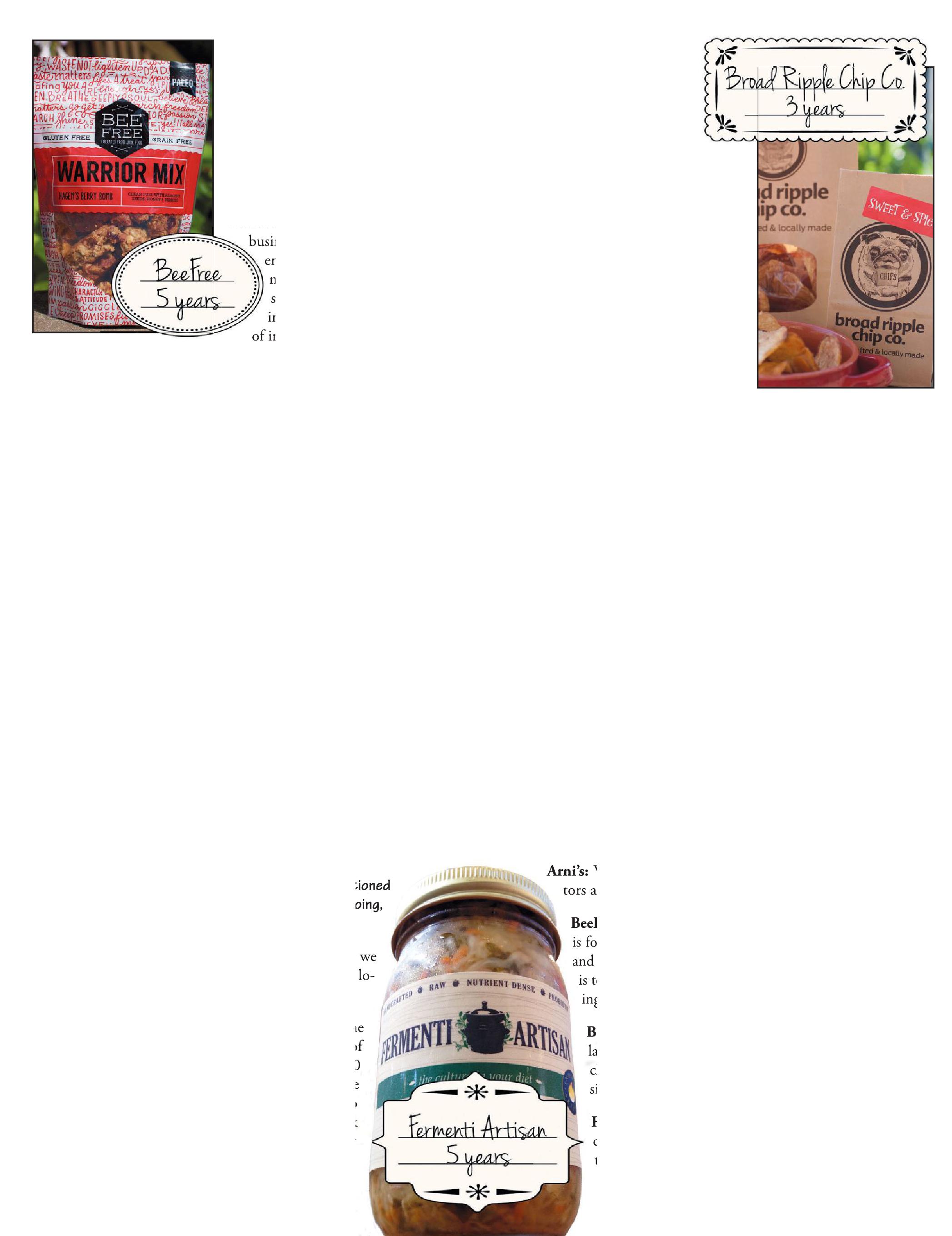
EI: Did you have rough times where you questioned whether you should stick with it? What kept you going, and what advice can you give?
Agrarian: So far, the most signifi cant challenge we have faced is an extended move from our original location to a much larger location.
Arni’s: Th ere have been some very hard times, none worse than the recent recession. But getting out of the business was never considered. With almost 500 employees, it wasn’t a choice. We had to buckle down and ride it out. Hard decisions were made to cut as much expense as possible. Don’t ever think that you are running your business as effi ciently as you possibly can. With a proverbial gun to our heads we found many ways to run a tighter business.
BeeFree: I would say this question is exactly what defi nes an entrepreneur: the willingness to take risks, fall down, get back up again and again—being so passionate about your cause or product that you are willing to stay on the course when most others would jump ship.
BR Chip: My advice would be to not have the pressures of a bank loan—or any loan, for that matter—and avoid high rent (I would get the cheapest rent/ overhead I could unless it was a retail business, where location truly matters). Not having the debt pressure made all the diff erence in the world as far as growing the business.
Fermenti: Yes, as a self-funded company that has never taken on any debt, we constantly experience occasional rough times. Th e best advice we can give is to fi nd something that you are passionate about and which contributes positively to society, start out fully funded and have outlets for your product from the start.
Upland: Your business has to be about something bigger than your own ego and income. When it is, the answers to why and how you push through the rough times will reveal themselves.
Viking Lamb: Th ere were lots of rough times. You have to LOVE what you do—if you’re doing it for the money, go do something else.
EI: What are your recommendations for capital?
Agrarian: No small business has enough capital to take advantage of every opportunity that arises. As a new business, we would recommend that borrowing be avoided or at least kept to the absolute minimum because the ultimate success of the business is always in question. Not having unlimited capital forces the business to fund only the most essential actions and keeps the focus on only the most profi table opportunities.
Arni’s: Work with a respected bank. Go to outside investors as a last resort.
BeeFree: Once you get past the self-funding stage, the goal is for sales to generate enough cash to cover your growth and operating costs. Th e next logical stage, in my opinion, is to look at lines of credit. I’ve always tried to avoid selling equity in an eff ort to protect BeeFree’s uniqueness.
BR Chip: Keep your costs as low as possible: rent, labor, equipment—make do without every fancy machine, vehicle or utensil. And avoid loans if at all possible. If you must borrow, talk to family if you can.
Fermenti: Take/receive capital from people who can contribute to the operations and administration of the business
Viking Lamb: Don’t go to a bank.
I knew nobody was going to lend me money on a sheep operation, so we used credit cards to originate capital—we racked up $125,000. It took organization and discipline, but we paid it off and it’s what got our business going.
EI: How important is sales and marketing to your business?
BeeFree: Well, since sales and marketing is my main focus, I think it is super important. I’m an old-fashioned girl who likes to get out there and meet people and have a live conversation and write thank-you notes. I try to mesh the modern technologies of today’s world with those of the past to give our customers a unique experience.
BR Chip: Very important, but it is easy to let it slide if you’re preoccupied with other busywork. I see a positive response to sales calls and giving out samples almost immediately.
Fermenti: Without sales there is no money, so they are absolutely one of the top priorities. With brand recognition and image being most of our marketing, and why most people buy our product, it is also very important.
Viking Lamb: It’s the most important thing we do. Standing in line or wherever, you should always be promoting your product and selling. Most businesses that fail don’t because they have too much business.
EI: When did you see success?
Agrarian: We were fortunate to have “success” from the fi rst month in business in that we were cash-fl ow positive. However, we have not yet met our ultimate goals, so SUCCESS is still several years off .
BR Chip: I think once we started selling our chips in all the local grocery stores, such as Kroger, Fresh Th yme and Marsh, I knew we would be OK.
Fermenti: When the fi rst person thanked us for contributing to the recovery of their health.
Viking Lamb: I felt legit when I walked into wellknown establishments and saw my company’s name on the menu.
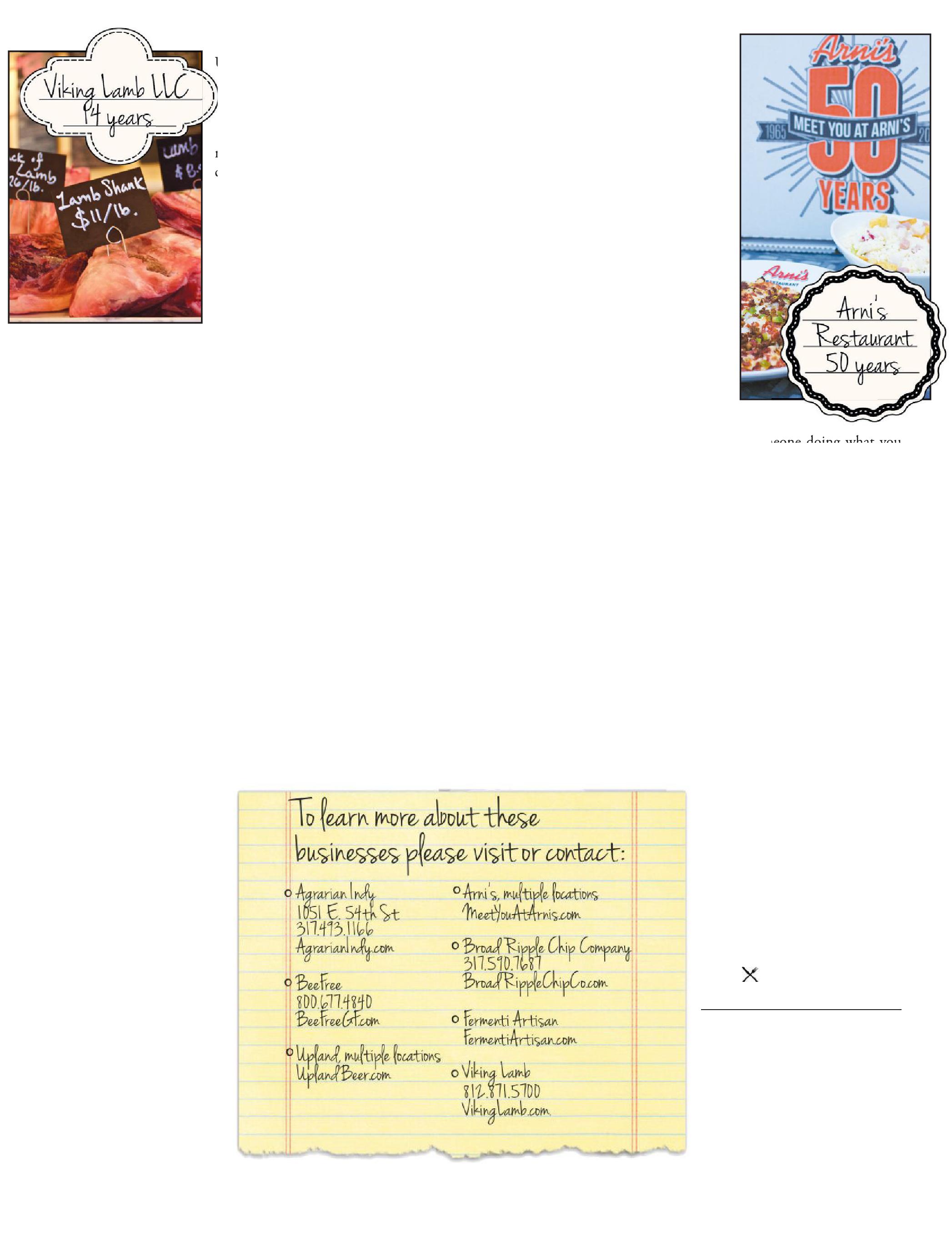
EI: What advice do you have for someone thinking about starting a business?
BeeFree: I would advise anyone wanting to start their own business to be super passionate about their brand and to be willing to work really hard, for years.
BR Chip: Make sure that you have a product people really like that is unlike other things for sale. Something that fi lls a niche that is currently not fi lled.
Upland: Be honest about your personal weaknesses, and work hard to understand the weaknesses of your business plan. Ignoring those risk areas is the most common mistake entrepreneurs make, because, by defi nition, entrepreneurs are optimistic and not wired to think about why they might fail.
Viking Lamb: Find someone to emulate—someone doing what you want to do or who has skills and talents that you think would apply to what you want to do.
EI: What is one resource you would recommend using?
Agrarian: Get as much advice as possible from other small business owners.
Arni’s: A good attorney and a good accountant.
BeeFree: Highrise, my customer relations management system that helps keep me connected to my customers on a timely basis.
BR Chip: I enjoyed meeting with the local free SBA SCORE counselors before I started. Also I would scour the Internet for ideas that are successful in other towns/states to fi nd one that could be duplicated locally, or done even better.
Upland: You need to have someone in your inner circle who can play devil’s advocate and criticize your ideas and work in a safe and eff ective manner and in a way you can hear them.
Viking Lamb: Every time you fi nd someone successful, particularly in what you’re doing or want to do, ask them how they did it.
Rachel D. Russell is the managing editor of Edible Indy. She has a passion for food, second only to writing, and enjoys hearing about how food has shaped lives. She is always interested in comments and ideas for new stories. She can be reached at editor@edibleindy.com.
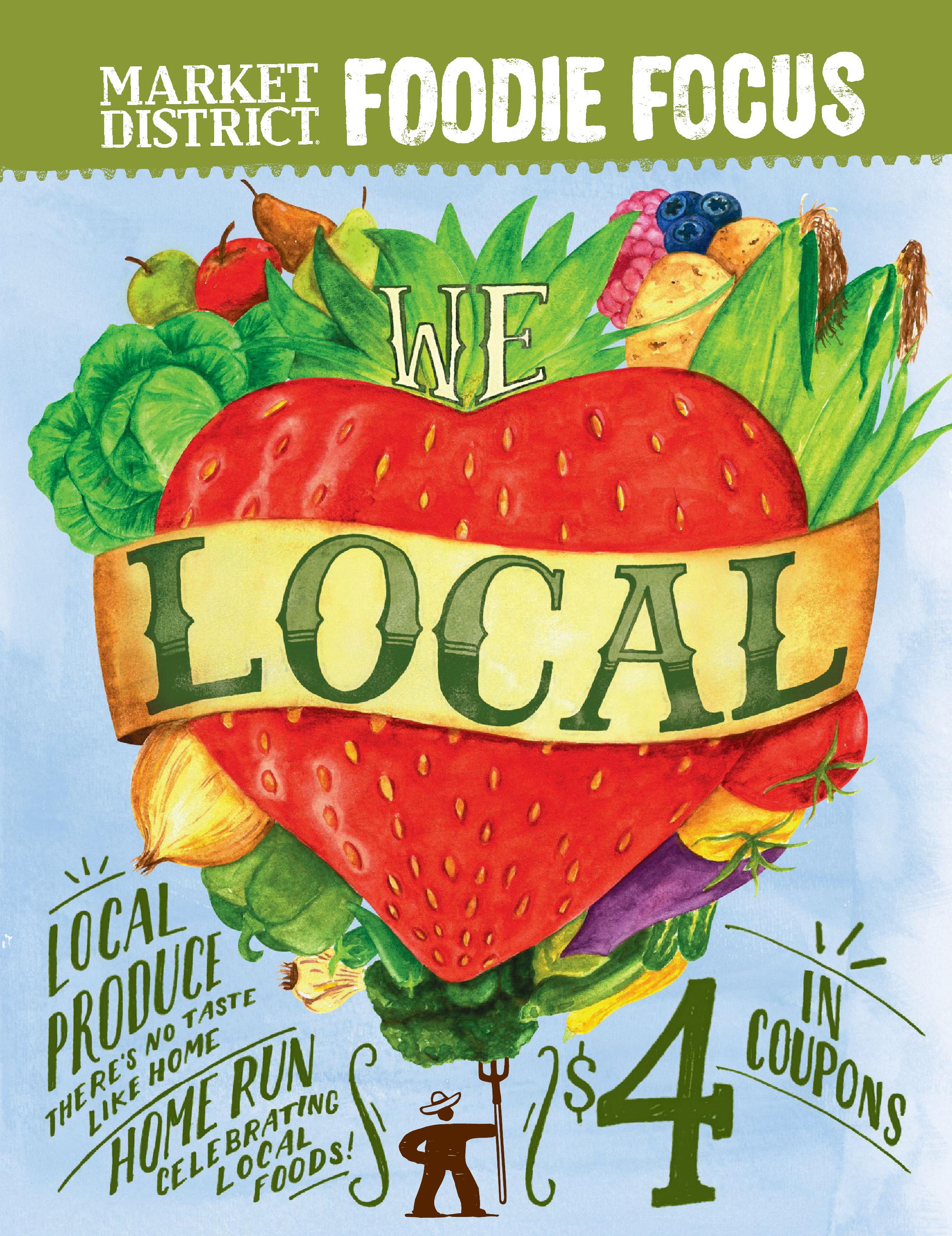
FARM FOCUS
White Violet Center for Eco-Justice is a ministry of the Sisters of Providence, who have been farming the land since 1840 — 175 years. They originally emigrated from France to build a school in America and wound up using the land they bought to sustain their endeavors. They raised sheep for wool, chickens for eggs, cows for dairy and nourished the land organically to produce vegetables and grains.
Over the years, the sisters leased some of the land to farmers (practices at odds with the organic nurturing of the soil and atmosphere). When they realized the damage being done, they reclaimed the farms and in 1996, the White Violet Center for Eco-Justice was born. Twenty years later, with much love and care, the 343 acres of farmland has returned to its healthy, food that Market District is pleased to bring you.
“We take very good care of our land,” says Candace Minster, Garden Manager. “We use crop rotation and add organic matter like compost, to preserve its fertility. Use of cover crops, like clover, help rebuild the soil with nitrogen. We also take food safety very seriously and sell what we’ve been told is the cleanest at the market.”

Specializing in heirloom varieties, the Center brings us heirloom tomatoes, zucchini, beans and organic arugula, which is, according to Ed Cifu, our Director of Fresh Merchandise, “out of this world.”
Now available in our Produce Department!
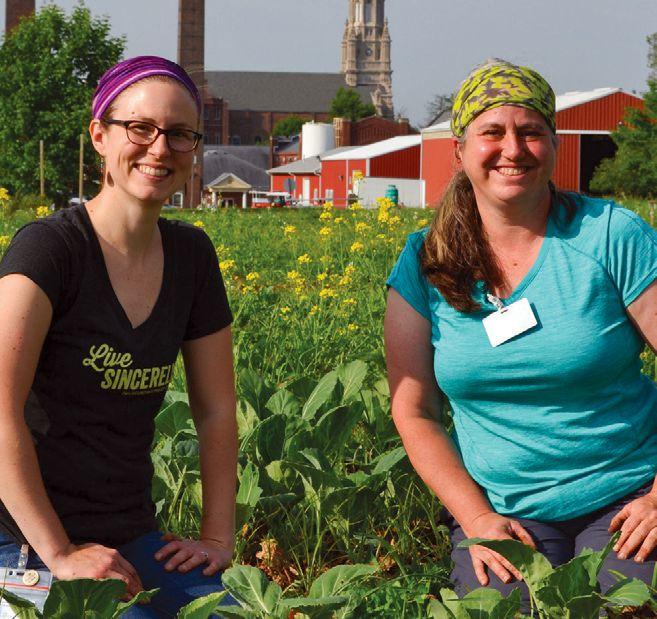
Candace Minster & Ann Testa
“What we love about heirloom varieties,” says Candace, “is that they are old (pre-1950s hybrid craze) and open-pollinated. This means pollinated naturally by the wind. Although you might not get consistent germination and cookie-cutter form, It’s a win to us.”
Beyond farming, the Center’s mission is to foster a way of living that recognizes the interdependence of all creation. Grounded in an understanding of Providence Spirituality as hope and healing, it offers leadership and education in the preservation, restoration and reverent use of all natural resources, and in creating systems that support justice and sustainability. To this end, the Center provides regularly scheduled educational workshops, cooking classes, ecospirituality retreats, as well as internship, sabbatical and volunteer opportunities.
“We’re really proud of what we do here,” says Candace. beautiful and want you to experience that beauty as well.”
Lettuce Give You a Tip: Candace says hot weather arugula is far spicier than that harvested in the cooler fall months. She recommends wilting it over pasta or using it to make pesto with a little kick.
JUST SOME OF OUR LOCAL FOOD FAVORITES!
Find these and more throughout our store!
BeeFree Gluten-Free Bakery, Noblesville
ingredients or preservatives. Owner Jennifer Wiese spent long days ™ in Auggie’s Original, plus
Best Boy & Co., Roanoke
Broad Ripple Chip Co., Indianapolis
Wayne Shive
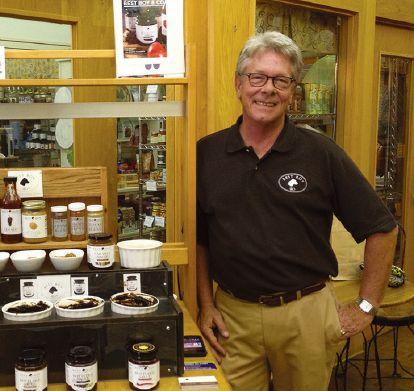

Brooke’s Naturals Gluten-Free Baking Mixes, Dana
Copper Moon® Coffee, Lafayette
Brooke Schmidt & Dana Vicars
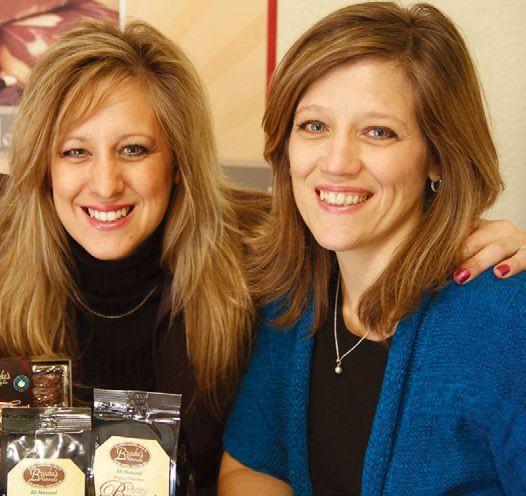
$1 OFF
4 oz. box Frittle Peanut Fudge Brittle in Our Sweets Shop
Limit one coupon per customer. Not valid with any other offer. Not subject to doubling. Copies and facsimiles not accepted. Coupon is worth no cash value. Excludes purchases of prescriptions, gasoline, convenience store items, gift cards, tobacco, cigarettes, alcohol and other items prohibited by law.
Limit one coupon per customer. Not valid with any other offer. Not subject to doubling. Copies and facsimiles not accepted. Coupon is worth no cash value. Excludes purchases of prescriptions, gasoline, convenience store items, gift cards, tobacco, cigarettes, alcohol and other items prohibited by law.
Limit one coupon per customer. Not valid with any other offer. Not subject to doubling. Copies and facsimiles not accepted. Coupon is worth no cash value. Excludes purchases of prescriptions, gasoline, convenience store items, gift cards, tobacco, cigarettes, alcohol and other items prohibited by law.
Limit one coupon per customer. Not valid with any other offer. Not subject to doubling. Copies and facsimiles not accepted. Coupon is worth no cash value. Excludes purchases of prescriptions, gasoline, convenience store items, gift cards, tobacco, cigarettes, alcohol and other items prohibited by law.
Limit one coupon per customer. Not valid with any other offer. Not subject to doubling. Copies and facsimiles not accepted. Coupon is worth no cash value. Excludes purchases of prescriptions, gasoline, convenience store items, gift cards, tobacco, cigarettes, alcohol and other items prohibited by law.
50¢ OFF
Any LocalFolks Condiment
Expires 8/31/16 Redeem only at:
$1 OFF
Any Skinny & Co. Product in Our Health, Beauty & Wellness Department
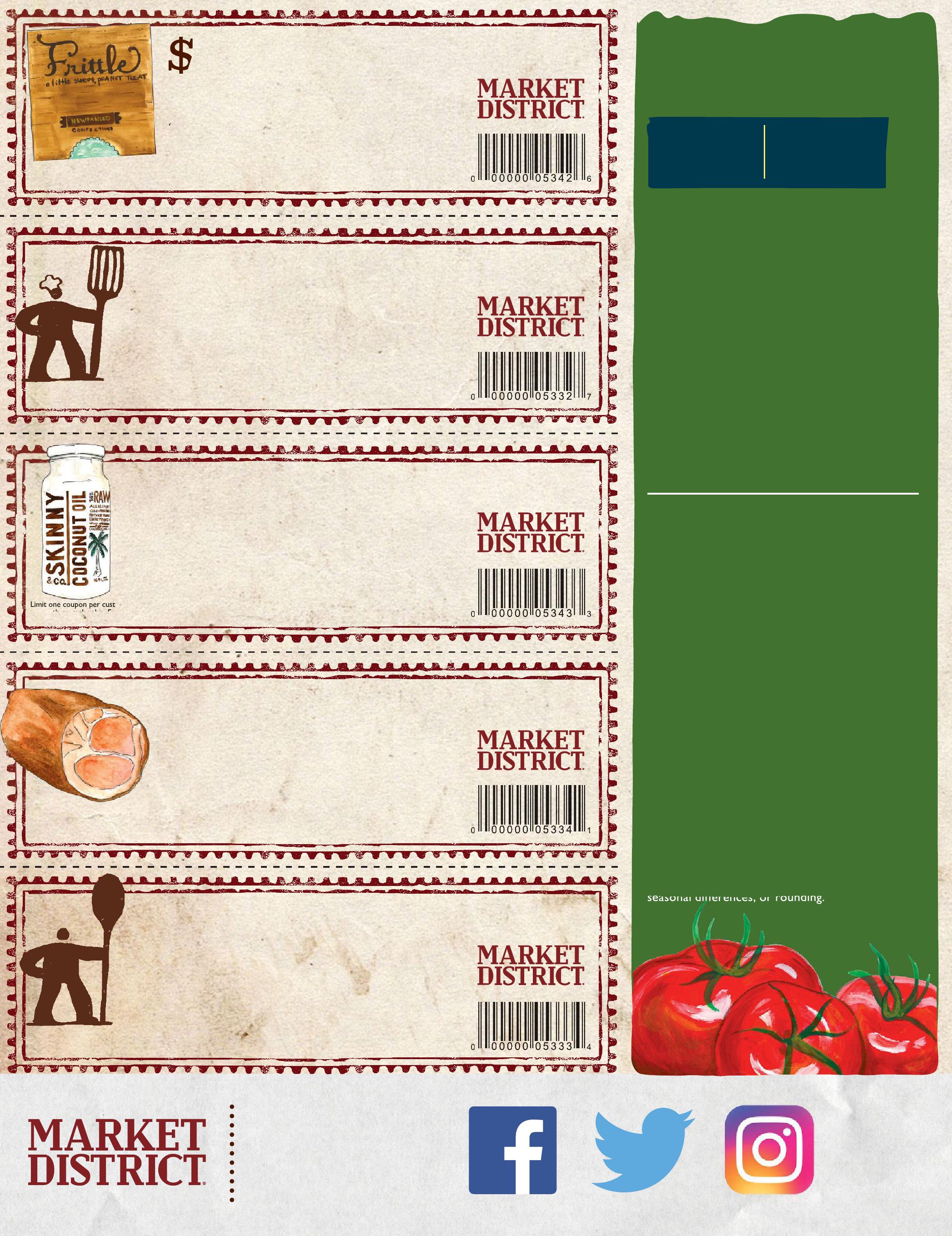
Expires 8/31/16 Redeem only at:
$1 OFF
Any Smoking Goose Product in Our Charcuterie
Expires 8/31/16 Redeem only at:
50¢ OFF
Traders Point Yogurt in Our Dairy Aisle
Expires 8/31/16 Redeem only at:
11505 N Illinois St. Carmel, IN 46032 317.569.0171
Compliments of Chef Ben D’Amico
Serves 4
Prep Time 15 min.
• 2 pints grape tomatoes • 3 Tbsp. fresh curly parsley, minced • 1 cup assorted olives, pitted • 1 Tbsp. lemon juice, fresh • 2 Tbsp. Market District extra virgin olive oil • 1/2 Tbsp. kosher salt • 1/4 Tbsp. fresh-ground black pepper • 2 cups baby arugula • 1/4 cup Ricotta Salata cheese, crumbled • 2 Tbsp. pistachios, chopped
1. Place tomatoes, parsley and olives in a mixing bowl. 2. Add lemon juice, olive oil, salt and black pepper. 3. Toss gently. 4. Place the baby arugula on a plate or platter. 5. Top the greens with the tomatoolive salad. 6. Garnish with crumbled Ricotta
Salata and pistachios.
Nutritional Information (Per serving): Calories 180, Fat 15g, Sat. Fat 3g, Trans Fat 0g, Cholesterol 10mg, Sodium 1010mg, Total Carbohydrate 11g, Fiber 4g, Sugars 5g, Protein 5g, Vitamin A 40%, Vitamin C 45%, Calcium 10%, Iron 10% Nutritional values are based on data from the USDA National Nutrient Database for Standard Reference. Actual nutritional values may vary due to preparation techniques, variations related to suppliers, regional and seasonal differences, or rounding.
Illustration by Britny Trainer










